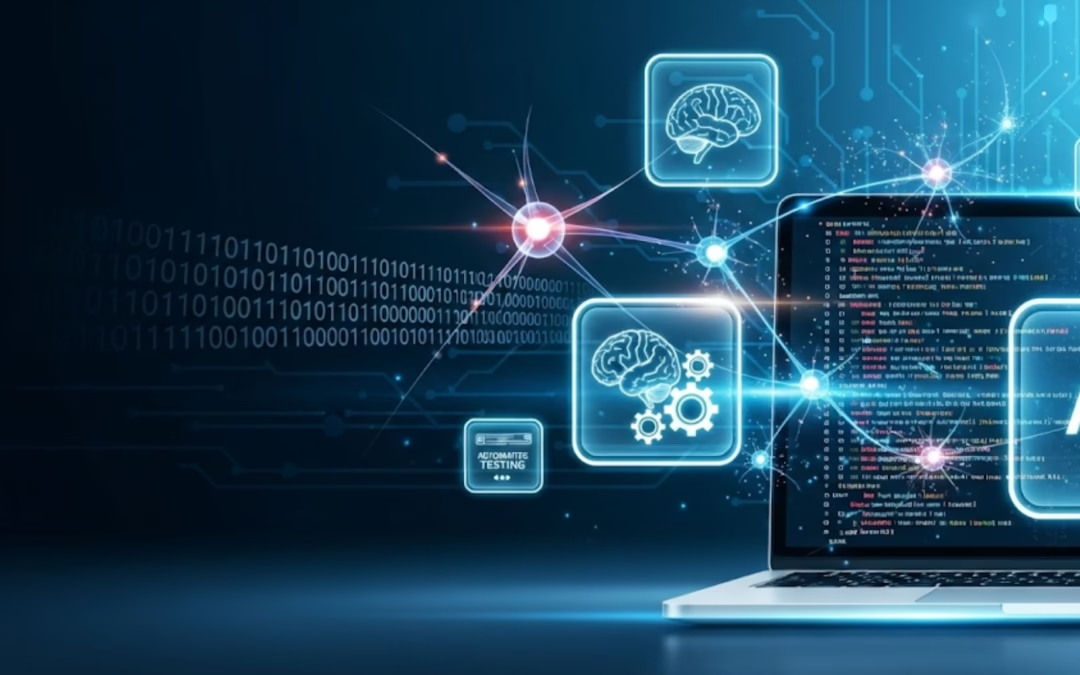Agentic AI—systems that act independently, make decisions, and pursue goals—promises to revolutionize industries from healthcare to finance. But there’s a catch: autonomy without context is chaos. Without understanding the nuances of their environment, Agentic AI risks making decisions that are technically correct but contextually disastrous.
Enter Model Context Protocol (MCP), a framework that equips Agentic AI with the situational awareness to navigate complexity. Think of MCP as the “rulebook” that tells AI not just what to do, but when, why, and how to adapt.
In this blog, we’ll explore how MCP bridges the gap between raw intelligence and real-world pragmatism—and why it’s the missing piece for scalable, trustworthy Agentic AI.
How Agentic AI Uses MCP: A Symbiotic Workflow
1. Contextual Awareness: Seeing the Big Picture
Agentic AI without MCP is like a self-driving car with no GPS. It might avoid obstacles but can’t navigate to a destination. MCP integrates:
- Spatiotemporal Data: Where and when the AI is operating (e.g., a warehouse robot avoiding rush-hour foot traffic).
- Stakeholder Intent: Who it’s serving (e.g., a healthcare AI prioritizing patient outcomes over hospital profits).
Example:
A customer service Agentic AI uses MCP to recognize a user’s frustration (via tone analysis) and escalate the issue to a human agent—while staying polite in a regulated industry.
2. Continuous Learning: Building Institutional Memory
MCP acts as Agentic AI’s “long-term brain,” storing:
- Success Patterns: Strategies that worked in past scenarios (e.g., optimal inventory restocking during holidays).
- Failure Modes: Errors to avoid (e.g., overpromising delivery dates during supply chain disruptions).
This memory is anonymized and shared across AI instances, creating a collective intelligence pool.
Real-World Relevance: Use Cases Across Industries
Agentic AI and Model Context Protocol (MCP) are revolutionizing industries by enabling autonomous decision-making, adaptability, and contextual awareness. Below are key use cases demonstrating their impact:
1. Healthcare: Precision Diagnostics & Remote Monitoring
Agentic AI analyzes patient data in real time to recommend personalized treatments, predict disease outbreaks, and assist in surgeries. For example, Philips’ IntelliVue Guardian System uses AI to monitor ICU patients and alert care teams to anomalies.
MCP Integration: Adds contextual layers like local disease trends and HIPAA compliance, ensuring decisions align with ethical and regulatory standards.
2. Retail & E-Commerce: Hyper-Personalization
Agentic AI drives dynamic pricing (e.g., Airbnb, Uber) and personalized recommendations (e.g., Sephora’s Pocket Contour). Zara’s supply chain AI optimizes inventory based on real-time demand.
MCP Role: Balances customer preferences with inventory data, adjusting strategies during disruptions like weather events or supply shortages.
3. Finance: Fraud Detection & Algorithmic Trading
Agentic AI autonomously detects suspicious transactions (PayPal) and executes trades (Goldman Sachs). Bud Financial’s AI manages customer finances to prevent overdrafts.
MCP Contribution: Evaluates market volatility and regulatory constraints, enabling risk-aware decision-making.
4. Manufacturing & Logistics: Autonomous Optimization
Agentic AI predicts equipment failures (Siemens), reroutes shipments (FedEx), and manages factory workflows. Darktrace’s AI autonomously responds to cyber threats in real time.
MCP Framework: Integrates sensor data, historical maintenance logs, and external factors (e.g., weather) to optimize operations.
5. Customer Service: Proactive Resolution
Agentic AI handles 80% of routine inquiries (e.g., Power Design’s HelpBot) and escalates complex issues. Palo Alto Networks’ HR agent “Sheldon” autonomously resolves employee queries via Slack.
MCP Enhancement: Uses natural language processing (NLP) to interpret context and sentiment, delivering tailored responses.
How Agentic AI & MCP Drive Business Value
Cost Efficiency:
- Automates repetitive tasks (e.g., IT ticket resolution saves 1,000+ hours annually).
- Reduces operational waste (e.g., MCP-driven logistics cuts fuel costs by 20%).
Scalability:
- MCP’s modular design allows seamless integration of new modules (e.g., GDPR updates) without system overhauls.
- Agentic AI adapts to market shifts (e.g., dynamic pricing during demand spikes).
Enhanced Decision-Making:
- Combines predictive analytics (Agentic AI) with real-time context (MCP) for agile strategies.
- For example, AI aligns treatment plans with patient histories.
Risk Mitigation:
- MCP enforces compliance (e.g., Darktrace’s cybersecurity protocols), while Agentic AI isolates threats autonomously.
Forward-Looking: Challenges & Future Trends
Key Challenges
Ethical Risks: Bias in AI decision-making and privacy concerns (e.g., healthcare data misuse) demand robust governance frameworks.
Integration Complexity: Legacy systems struggle to support MCP’s real-time data needs, requiring costly upgrades.
Workforce Displacement: Automation threatens roles in customer service and logistics, necessitating reskilling initiatives.
Future Trends
Self-Evolving AI: Agents will self-audit for bias, auto-scale during peak loads, and collaborate across ecosystems (e.g., supply chain AIs negotiating with smart cities).
AI Orchestrators: Supervisory AI systems will govern networks of agents, optimizing workflows while ensuring compliance.
Ethical AI Ecosystems: Regulations will mandate transparency in AI decisions, with “guardian agents” auditing outcomes.
Why MCP is Non-Negotiable for Enterprise AI
Risk Reduction
MCP prevents “rogue AI” scenarios by enforcing compliance and ethical boundaries.
Scalability
MCP’s modular design allows adding new context layers (e.g., GDPR updates) without rebuilding systems.
User Trust
Transparent context protocols make AI decisions explainable—critical for regulated industries.
Conclusion: Autonomy Meets Accountability
Agentic AI and MCP are not just tools—they redefine how businesses operate. By merging autonomous decision-making with contextual intelligence, enterprises achieve resilience, innovation, and ethical accountability. As Gartner notes, 33% of enterprise apps will embed Agentic AI by 2028 58, making early adoption critical for competitive advantage.
Ready to transform your business?
Explore frameworks that combine Agentic AI’s autonomy with MCP’s contextual precision—ensuring your systems think strategically and act responsibly.









